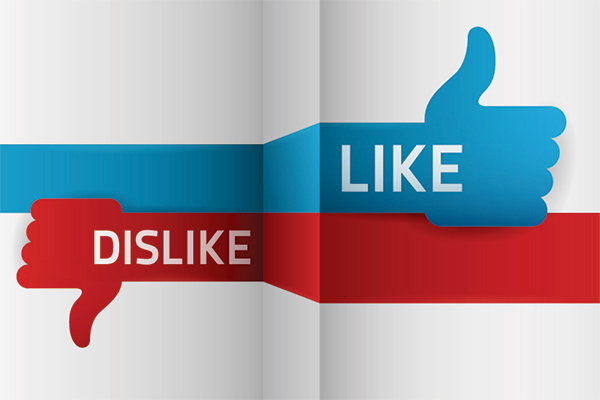Just came across this section of Transforming Behaviour Change while looking for a reference about decision-making and thought it was worth sharing. Any vegetarians or anti-vegetarians out there with views on the subject?
"This message that we are not rational is not a simple one to convey, because we also appear to have a somewhat craven need for rationalisation. In fact, the social presumption of rationality is so strong that we are inclined to find and create reasons for our actions, or even invent them, merely to preserve the illusion that our choices are freely chosen.
This social imperative of cognitive consistency is the reason why vegetarians, for example, are frequently cross-examined, often by an entire dinner table, on the rationale and consistency of their preference to avoid the meat that most people eat. At an anecdotal level, it seems the ethical and environmental gains achieved through eating less meat are given relatively little attention, compared to the social sanction of highlighting perceived inconsistencies in the individuals making the effort.
For example, the inconsistency of wearing a leather belt while avoiding a beef stew appears to be more salient in social company than the fact that, for example, if every
American reduced meat intake by one meal a week, it would have the equivalent environmental impact as taking five million cars off the road.
In a recent talk on ‘Eating Animals’ at the RSA, Jonathan Saffron Foer argued that most meat eaters simply do not want to know about the conditions on factory farms, for fear that it would create unbearable cognitive dissonance. In light of animal suffering, and concomitant environmental degradation, Foer suggests people cannot reconcile their desire to enjoy the taste and cultural appropriateness of meat eating with their desire not to cause unnecessary suffering, so rather than stop eating meat, they prefer not to know about the suffering and the environmental harm:
"We have such a resistance to being hypocrites that we would rather be fully ignorant and fully forgetful all the time."
This claim is a strong one, but it is important to make this case because it is fundamental to the social influence on decisions, and supports the need to shape social norms, rather than merely being subject to them, for it is these norms that normalise our behaviour.
A similar point about the challenge of pervasive self-justification is made by Tavris and Aronson, who contend that there are very few conscious hypocrites in the world. Indeed our capacity to rationalise our behaviour as being consistent with our beliefs is extraordinary, and we usually achieve this by shifting our beliefs rather than our behaviour, even if doing so paradoxically flies in the face of reason. As Tavris and Aronson put it:
"All of us, to preserve our belief that we are smart, will occasionally do dumb things. We can’t help it. We are wired that way."
Related articles
-
How can we give up bad habits for good?
Ian Burbidge
With the post-Christmas resolutions looming, when we try to address the worst of our seasonal over-indulgences, the question remains: how can we give up bad habits for good?
-
Why fake news doesn't swing elections
Tony Greenham
Fake news doesn’t swing elections, but neither does ‘truth’. We have always filtered new information to fit our existing prejudices. The real danger to our democracy is not an absence of truth, but an absence of trust.
-
Tell me a story? Or give me the figures?
Nathalie Spencer
What is the best way to influence stakeholders and generate change? Different approaches to generating change have different strengths, when should each be used to the best effect?




Join the discussion
Comments
Please login to post a comment or reply
Don't have an account? Click here to register.
I don't believe Foer's claim. Willful ignorance cannot be our only or even main defense against cognitive dissonance. If that were so, we wouldn't be able to deal with the many blatant inconsistencies we are confronted with every day. Historically, we have lived through many troublesome acts--slavery, lynching, colonization, concentration camps, stoning people to death, etc.--even when we could not deny the facts. In today's America, we can accept homelessness, denying civil rights to gay people, overlooking/promoting Israeli apartheid, waterboarding, climate change, etc., although we cannot always plead ignorance. To suggest that "[meat-eaters] prefer not to know about [animal] suffering" rings too simplistic. A similar claim used to be that cigarette smokers were not aware of the harm to themselves and others around them, but what could be more "in your face" than smoke? How much knowledge does Foer imagine will be needed to tip the scales? I also think that Tavris and Aronson only scrape the surface when they claim that it is our capacity for self-justification that allows us to deal with cognitive dissonance; many of us are child abusers, wife beaters, porn addicts, cheaters on taxes, adulterers, etc., but lead "otherwise normal" lives. We wouldn't necessarily justify our aberrations or even attempt to reconcile them with our belief systems; it is more accurate to say that we muddle along with our inconsistencies, hoping for salvation in some distant future when our behavior will harmoniously blend with our 'true" nature. The mechanism for "Give me continence but not yet" is the one that needs to be understood, and it does not stem from ignorance or rationalization.
Thanks Wendy, it's a pity 'cognitive dissonance' sounds so technical, because, as you say, it is pervasive. Another example is climate change,that we generally struggle to face up to; sometimes it is almost impossible to align our actions with a full grasp of the facts, so it makes sense not to take them on board.
Cognitive dissonance also seems to occur when people know that its moral and the right thing to do when it comes to reporting/whistleblowing on corruption. This knowledge rarely translates into behaviour. Hence the exclusion of whistleblowers from society.